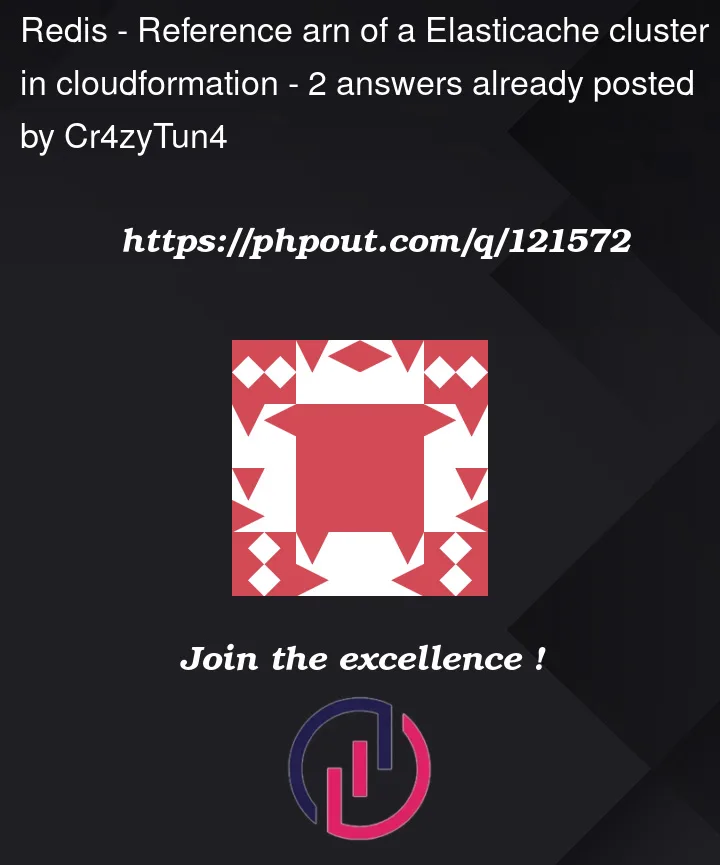I would like to reference the arn of a "going-to-be-created" Redis ElastiCache cluster in a cloud formation template.
This is the ElasticacheCluster template (tested and working in cloudFormation)
ElasticacheCluster:
Type: AWS::ElastiCache::CacheCluster
Properties:
AutoMinorVersionUpgrade: 'true'
Engine: redis
CacheNodeType: cache.t2.micro
NumCacheNodes: '1'
VpcSecurityGroupIds:
- Fn::GetAtt:
- ElastiCacheSecurityGroup
- GroupId
CacheSubnetGroupName:
Ref: ElastiCacheSubnetGroup
I cut on the other staff like subnetgroup and security group because it is also not relevant here. I should grant access to the Cluster to another resource with an Access Policies here what I was trying:
AccessPolicies:
Version: '2012-10-17'
Statement:
- Effect: Allow
Principal:
AWS: "*"
Action: es:*
Resource: !GetAtt ElasticacheCluster.Arn
- Effect: Allow
Principal:
AWS: "*"
Action: es:*
Resource: !GetAtt ElasticacheCluster.Arn
Condition:
IpAddress:
aws:SourceIp: 0.0.0.0/0
I saw this:
the !GetAtt ElasticacheCluster.Arn for the resource entry
here but seems not to be working in this case since !GetAtt is returning a fixed set of attributes and ARN is not one of them (as suggested by @Anton in the comments.
I also saw this other question that could solve the issue but I would prefer a not-harcoded-solution being not dependent on things like region and account id.
The solution to the problem seems to be simple but I am struggling to find a clean answer.




2
Answers
I took inspiration from both the @multiscup answer and the one referenced in the question.
This approach is far from clean and I am waiting for a better answer but at least it is working. The main idea is to construct the string needed for the arn:
To do that I used a join trying to dynamically get the element thanks to the built-in CloudFormation functions:
I used a Map to define the Redis-cluster because I was using the same value also in other points in the CloudFormation template. Maybe you might find helpful to have the map as well
As Anton mentioned, GetAtt only has certain attributes that you can get. Also, the !Ref will return the logical ID of the resource. Have you thought about trying to use the User and/or the UserGroup resources to accomplish what you want?